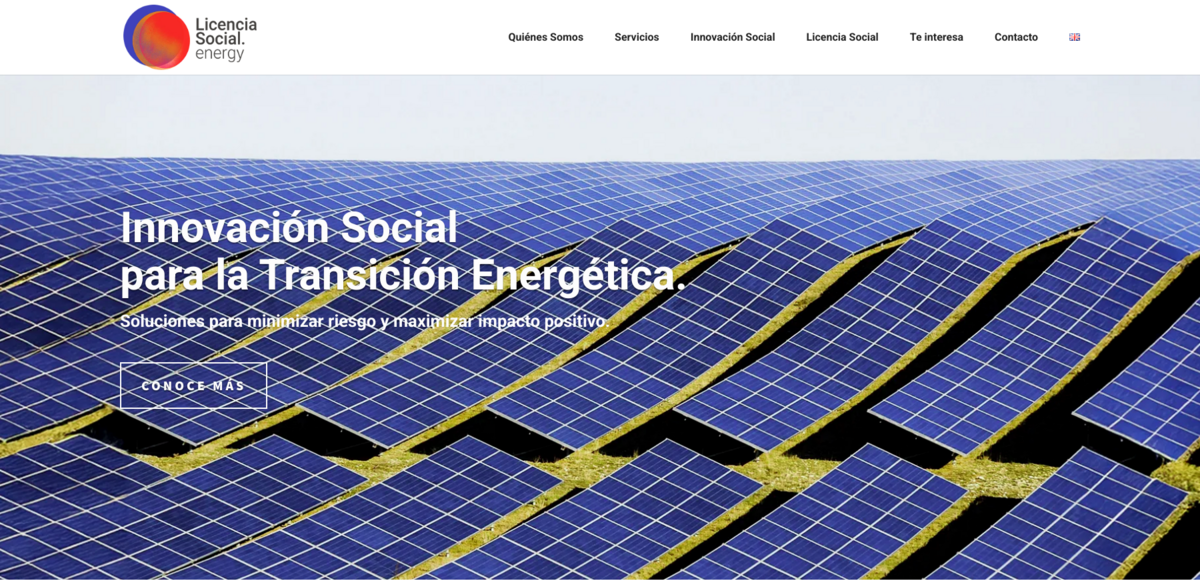What is Innovation Social for Energy Transition?
Innovation Social for Energy Transition is all about crafting solutions that minimize risks and maximize positive impact in renewable energy projects, storage, and natural resources. It’s a locally focused approach that helps build social acceptance from the very start—planning—to the very end—decommissioning. The goal? Creating consensus and shared value so projects don’t just succeed technically but also thrive socially and economically. It’s about aligning interests to earn that crucial Social License, because when everyone’s on the same page, real progress happens.
Main Benefits of Social Innovation in Energy Projects
Here’s what this approach brings to the table:
- Favors risk management, reducing uncertainties that can stall projects.
- Increases asset value and the amount of energy generated.
- Contributes to the positive impact of investments, making them more sustainable.
- Enables access to suitable land, often a major hurdle in energy projects.
- Facilitates decision-making by smoothing out conflicts early on.
- Reduces time and costs, speeding up project timelines.
- Brings the project closer to the territory, fostering local support.
- Improves operational credibility and reputation, essential for long-term success.
Who Are the Experts Behind This?
These specialists support the energy transition by generating sustainable agreements that matter. Their commitment? Accelerating the energy transition with solutions that tackle social challenges head-on. Their services are rooted in solid research, extensive study, and hands-on field experience. This isn’t theory—it’s a proven methodology, refined over decades across countries and sectors, now tailored specifically for renewable energy, storage, and natural resources. For the first time, these sectors get advanced social innovation tools designed to ensure success and sustainability from day one to the very end.
Services That Make a Difference
The range of services offered is comprehensive and designed to cover every social aspect of energy projects:
- Social Risks: Local context studies, key stakeholder analysis, and Due Diligence Social LicenseSM.
- Social License Strategy: Community information, participation, and positive impact measures.
- Conflicts: Collaborative negotiation and Alternative Dispute Resolution (ADR) methods.
- Communication: Visibility of benefits, achievements, and crisis management.
- Public Affairs: Managing relationships with public authorities to boost governmental and social support.
- Human Resources: Training and capacity-building for employees handling community relations.
Trust-building, active participation, and an integrated approach across all project phases ensure projects are not just accepted but embraced by local communities—turning them into advocates.
Innovative Tools for Social Innovation
Two standout services bring a fresh edge to risk detection and consensus-building:
- Due Diligence Social LicenseSM: This tool measures social legitimacy and makes community perception tangible. It diagnoses risks and opportunities to craft a smart community relationship strategy.
- Mediation with Administration: This service transforms the bureaucratic process into something more equitable, agile, flexible, and transparent by fostering collaboration and trust between developers and public authorities.
Project Impact on Sustainable Development Goals (SDGs)
- SDG 7: Affordable and Clean Energy
- SDG 8: Decent Work and Economic Growth
- SDG 9: Industry, Innovation, and Infrastructure
- SDG 11: Sustainable Cities and Communities
- SDG 13: Climate Action
- SDG 16: Peace, Justice, and Strong Institutions
- SDG 17: Partnerships for the Goals
Alliances and Commitment to Sustainability
The project is deeply committed to sustainability, promoting compliance with key UN SDGs and supporting initiatives like the Personal Development Goals: Transformative Skills for Sustainable Development. This focus on personal growth equips individuals to face global challenges, especially those tied to the SDGs. Additionally, the project supports the World Mediators Alliance on Climate Change, adhering to commitments that minimize environmental impact in every mediation. Strategic alliances with leading institutions across private, third sector, and academic fields keep the project at the forefront—always ready to offer sustainable, effective solutions.






















